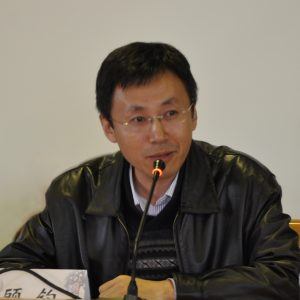
Jun Gu
Beijing Foreign Studies University
Biography
GU Jun received his Ph. D. from Peking University and is now professor of comparative literature and deputy director of International Institute of Chinese Studies at Beijing Foreign Studies University. He is the author of Samuel Wells Williams and Early American Sinology (2009), Lu Xun as a Translator of Foreign Literature (2009), The First Group of American Students in Beijing (2015), Essays on American Sinology (2016) and Yearly Dissemination of Chinese Cultural Classics in the 20th-century America (2017), and about 60 journal papers. He has finished 4 national- and ministerial-level academic projects in cross-cultural studies. He has been a visiting fellow of Yale University, University of London and Kansai University. In 2011, he was admitted into the Program for New-century Excellent Talents under the Ministry of Education.
「 Modernity and Nationalism: Lu Xun’s Translation of European Fiction, 1902-1909 」
From April 1902 to August 1909, Lu Xun spent 7 years in Japan, where he started his literary career as a translator of European fiction. In his first two years in Japan Lu Xun was preoccupied with science and made free translations of Jules Verne’s De la guerre à la lune and Voyage au centre de la terre. Treating western science fiction most seriously, he wrote in his preface: “The fictional heritage in our country abounds in works dealing with sentimental, historical, satirical, and bizarre subjects. But only science fiction is scarce. This is on of the reasons for the primitiveness of our knowledge. Therefore, if we wish to fill in the gap of today’s translations and to lead the Chinese people toward progress, we must begin with science.” Lu Xun’s arguments made it clear that science fiction was not only a literary genre new to China, but also, more importantly, a medium of national progress. Lu Xun’s search for modernity and nationalism continued, although his literary interests switched to European short stories after 1906 when he gave up medical studies. Before returning to China he published Collections of Stories from Abroad, which contained 16 pieces in translation, mainly from Russian and East European authors. Lu Xun’s choice was based on their avant-garde literary technique as well as “a spirit of militant resistance.” With these two major translation projects as examples, this paper will explore the impact of European civilization on a leading Chinese intellectual in early 20th century.



